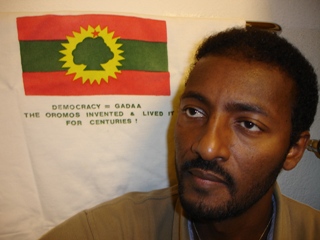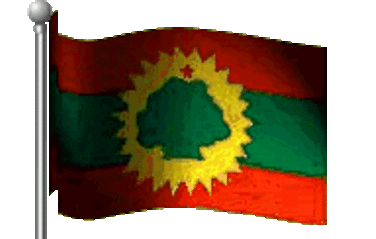IFJ calls for release of journalists imprisoned in Eritrea, Ethiopia
International Federation of Journalists (IFJ)
Press Release
March 15, 2007 — The International Federation of Journalists (IFJ) today renewed its call for the release of journalists in Eritrea and Ethiopia who have been held for years without trial in deplorable conditions and denied any contact with lawyers or their families.
“Eritrea and Ethiopia are both creating a lasting legacy of human rights abuse and intolerance for free expression that is not just taking a toll on society but also on the health and well being of the journalists they have detained for an unconscionably long time,” said Gabriel Baglo, Director of the IFJ Africa Office.
The IFJ sent an open letter to the Swedish Parliament calling on it to facilitate the release of 20 journalists jailed in Ethiopia for periods ranging from more than a year to almost three years and 15 journalists imprisoned in Eritrea for almost six years. The Parliament held a seminar yesterday on the imprisonment of Swedish-Eritrean journalist Dawit Isaac, who is among the group of Eritrean journalists who have been held since 2001 as political prisoners. Recent reports have said that one of the Eritrean journalists is now feared dead.
“We want to seize this opportunity to call on the Honourable Swedish Parliamentarians to do everything in their capacity to appeal for the release of our illegally detained colleagues without any further delay,” said Gabriel Baglo.
The IFJ is extremely concerned about “the Eritrean government’s ongoing reign of terror against the independent press”. Fifteen journalists including Swedish-Eritrean Dawit Isaac have been held in Eritrea without trial for almost six years. They have been imprisoned in secret detention centres. All the private media houses have been forced to close down.
In September 2001, opposition leaders advocated for democratic reforms, which were widely carried by the press. Following these reports, ten journalists were arrested along with some opposition leaders. The Eritrean government in an official statement labelled the journalists as "traitors working for the enemy" and a threat to national security.
The journalists are prohibited from communicating with their families and lawyers. Authorities have refused to release information specifying their location or health conditions and, according to recent reports, one of the journalists, Fessehaye "Joshua" Yohannes, is feared dead. There is also the case of five journalists arrested before the wave of repression began in 2001. Eritrea is the only country in the world where there are no independent media or foreign correspondents.
The continued lack of information about the situation of the captive journalists is a grave cause of concern.
The situation in Ethiopia is also a cause of grave concern.
November 2005, 17 journalists were arrested during the violent suppression of anti-government riots that followed the May 2005 elections in Ethiopia. The journalists were accused of publishing materials favourable to the opposition and were charged with treason. They could face possible death sentences or life imprisonment, according to Ethiopian legislation. Three detainees, a freelance journalist and two journalists from the public television channel ETV, have been in jail since April 2004.
number of the journalists and political prisoners have suffered from health problems due to the poor prison conditions. Prison sources stated that the journalists were sick and some of them were hospitalised at the time of the court hearings.
To read a copy of the letter to the Swedish Parliament click here.
For further information contact the IFJ: +221 842 01 43 The IFJ represents over 500,000 journalists in more than 115 countries



1 Comments:
This is a tangible proof for unlawful arrest and torture going on in Ethiopia & Eritrea.
Post a Comment
<< Home